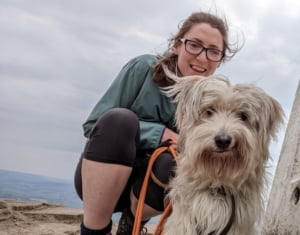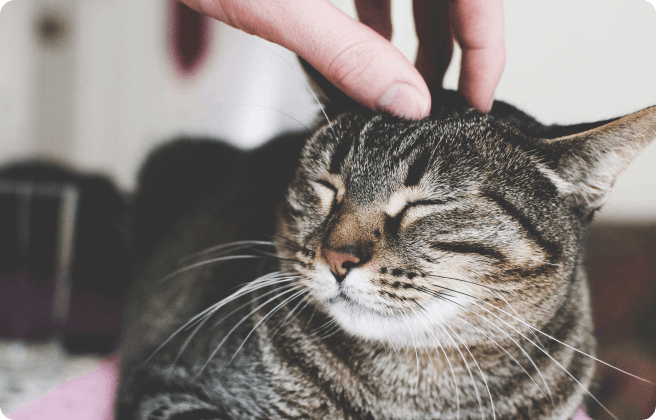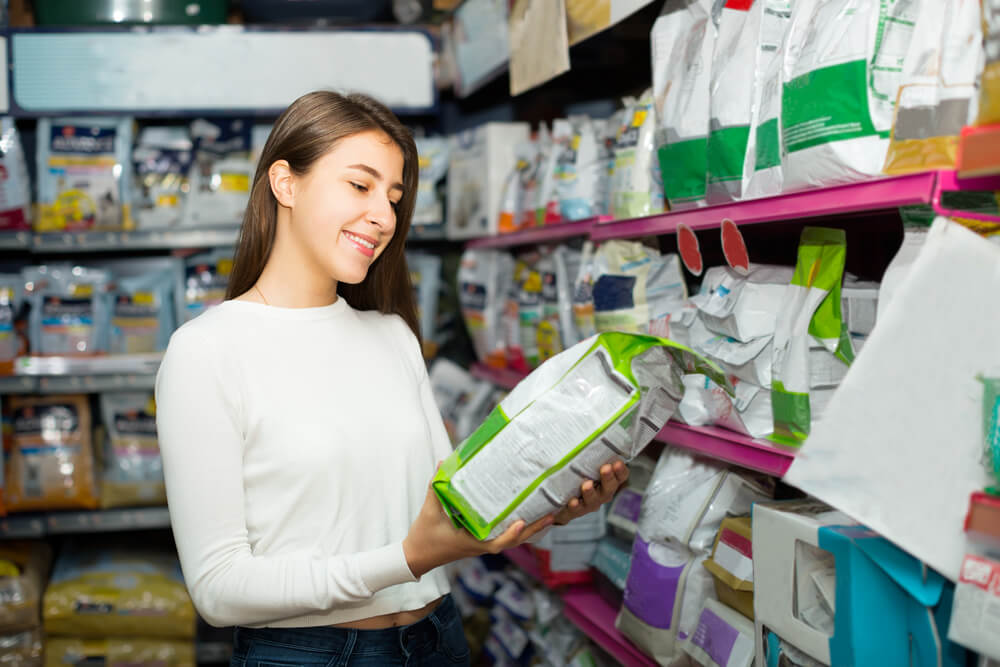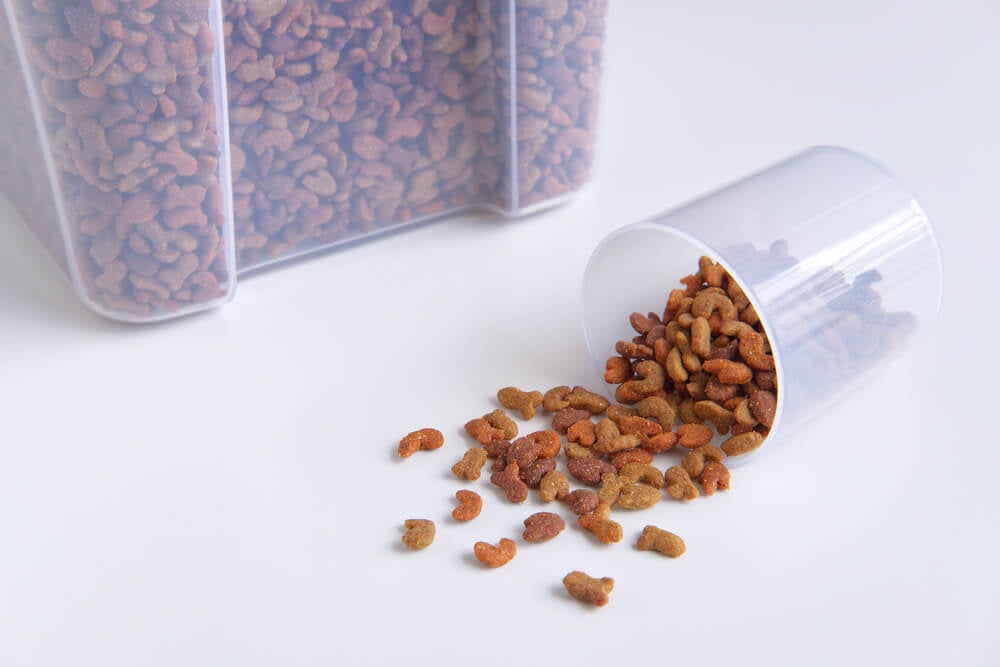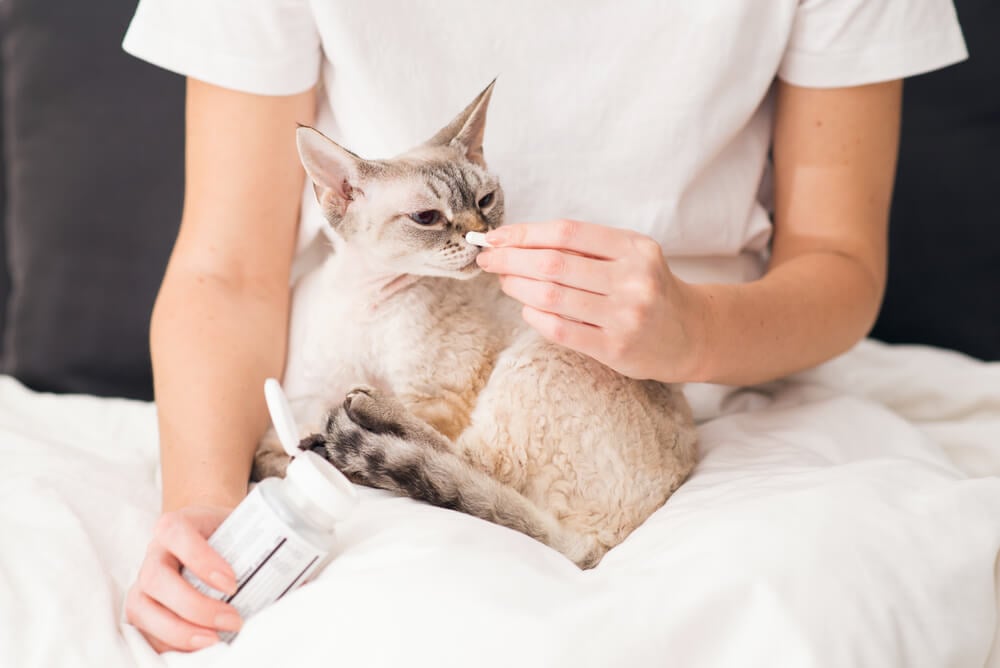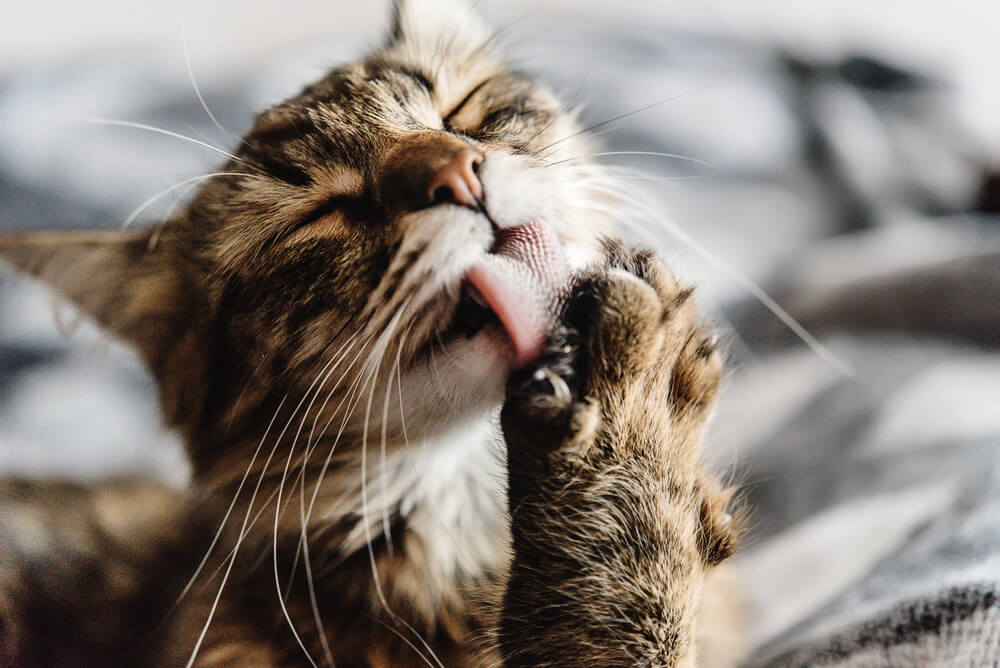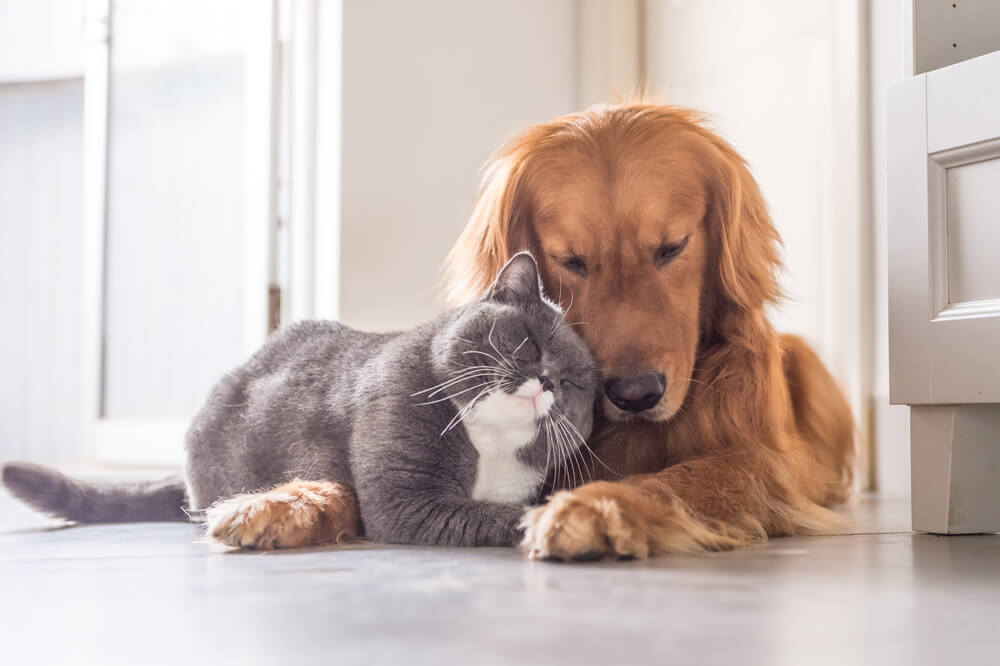
In a household with cats and dogs, they share many common joys — from cuddles and playtime to daytime snoozes. Sometimes, they may even sneak a bite from each other’s bowls.
But when it comes to cat and dog food, despite their visual similarities, can cats really eat dog food without risk?
Is it safe for cats to eat dog food?
“Generally speaking, it’s not dangerous for dogs to eat cat food, but it is dangerous for cats to eat dog food,” says Laura Ward, CFA’s in-house animal nutritionist.
Although dog food is not toxic for your cat, if consumed regularly, it can lead to serious health issues.
While a stolen snack from the dog’s bowl isn’t cause for panic, eating dog food on the regular can be detrimental to a cat’s health and well-being.
What’s the difference between cat and dog food?
“Cats are obligate carnivores which means that they evolved to hunt prey,” says Laura. “Their diet is therefore designed to recreate the nutrients which would be delivered through prey. For example, high levels of protein, taurine, and vitamins which the cat cannot produce themselves.
“Dogs on the other hand, are omnivores, which means that although they often thrive on a meat-based diet, they are similar to us humans and have more flexibility of where they can get their nutrients from.”
It’s not just marketing, dog and cat food really are different. After all, dogs and cats are unique creatures, each with their own specific nutritional needs.
Taurine, Arachidonic Acid, and Vitamins
Taurine, an essential amino acid, is vital for digestion, vision, and heart health. Cats cannot synthesize taurine themselves, so it must be obtained through their diet.
Arachidonic acid, a fatty acid, is another nutrient cats need, which dogs can produce on their own. Additionally, vitamin A, a vital dietary element, may not be present in the amounts required by cats in dog food.
Dog food may not contain adequate levels of these critical nutrients for cats, potentially leading to abnormal liver and kidney functioning, improper blood clotting, and an increase in skin problems when consumed regularly.
Dog food often will not contain sufficient quantities of these and other nutrients to supply the requirements of cats. When dog food makes up a regular part of a cat’s diet, or is fed instead of cat food, deficiency diseases arise.
These can go unnoticed for a long time, as the cat uses up stored nutrients, but often by the time deficiency diseases are noticed the damage can be irreversible.
Usual health implications of deficiency of taurine and arachidonic acid include poor vision, DCM and heart failure, worsening skin and coat health, amongst others.
Carbohydrates
Carbohydrates are not an essential part of the diet for dogs or cats, although they can play an important part in providing energy and diet balance in many situations. Often the carbohydrate content of dog foods is greater than cat foods. Although they aren’t necessarily an issue for cats, they have less adaptation to them in their diet and may lead to weight gain.
Calories
The calorie content in dog food may not match the caloric requirements of cats, potentially leading to weight-related issues.
Cats have very different energy requirements based on their lifestyle. Cats eating extra food, whether it’s from their dog-sibling’s bowl or nabbing the neighbor’s, are likely to intake more calories than required, therefore, gain excess weight.
Gaining weight above their ideal healthy size should be avoided for cats to have their best health, and avoid the faster onset of disease.
Size
There are many aspects to creating foods which cats enjoy and it is often optimized to suit the texture, shape, crunch or mouth feel that cats prefer. The same applies for dogs, and the aspects of the food for each differs.
Dog food is not an alternative to cat food, as it differs on so many aspects, nutritionally and in how it is designed for dogs and not cats.
Taste
As you probably already know, cats are fussy little creatures, and they don’t have the same taste as dogs. For example, cats can’t taste sweetness, while dogs can.
Cats show indifference to both sweet carbohydrates and sweeteners so it’s likely that your cat will turn up their nose at your dog’s food anyway. Although high protein dog food could catch your cat’s eye so be careful who’s sniffing around the dog’s bowl.
What if my cat eats dog food every day?
If your cat consumes dog food on a daily basis, the consequences can be more severe. While the occasional nibble from your dog’s dish might result in minor gastrointestinal issues, like vomiting and diarrhea, regular consumption of dog food can lead to more significant health problems for your feline friend as they risk deficiency diseases occurring.
Cats are obligate carnivores, and their dietary needs are quite distinct. They have evolved as hunters who feed on prey with high protein content, moderate fat, and minimal carbohydrates. These proportions remain essential to their well-being, as do a range of other nutrients, including vitamins, minerals, fatty acids, and amino acids.
A balanced and complete cat food is specifically formulated to meet these dietary requirements. If your cat is constantly fed a diet designed for dogs, they could miss out on essential nutrients while consuming an excessive amount of other nutrients.
In the best interest of your furry friend’s health, it’s crucial to provide them with a cat-specific diet that caters to their unique nutritional needs as obligate carnivores.
How can I stop my cat from eating dog food?
As many parents will know, cats can be clever creatures, so dog food needs to be kept out of sight, and out of mind.
If you are feeding both cats and dogs in a household, it is recommended to feed them in separate rooms to avoid your cat sneaking some dog kibble. If possible, having two pets in different rooms at mealtime can help.
Often dogs are food focused, and because of their scavenging evolution, they are more likely to eat a larger amount of food in one go — in contrast to cats who prefer to graze, eating little and often.
For this reason cats may not get much opportunity to eat dog food. But, if your dog doesn’t eat in one go, remove their food bowl and offer it again later. This avoids cats eating your dog’s dinner.
What to do if your cat eats dog food
If your healthy cat pinches a few bites from your dog’s bowl, there’s usually no need to worry. Keep an eye out for diarrhea, vomiting, or weight loss, and contact your vet if there are signs of these reactions. However, eating dog food may be more problematic if your cat has an underlying health condition or an allergy.
We uphold the highest editorial standards when creating the authoritative content pet parents rely on and trust.
Every piece of clinical content on the Cat Food Advisor is reviewed by our certified Veterinary Advisory Board, which consists of licensed veterinarians and medically certified specialists.
Our reviews are completely independent; we are not paid by any pet food company to promote their products favorably. We do not accept money, gifts, samples or other incentives in exchange for special consideration. For more information see our Disclaimer & Disclosure page.



